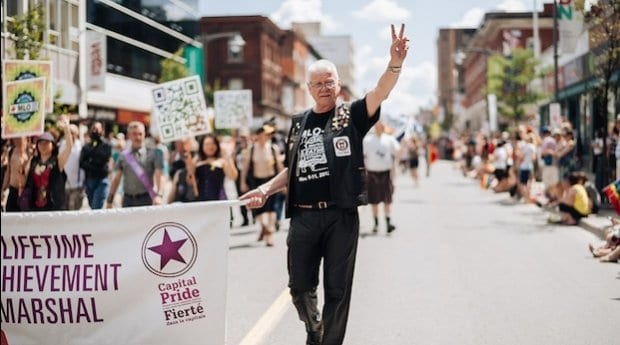
Thousands turned out for the 29th annual Capital Pride parade Aug 24. Credit: Ben Welland
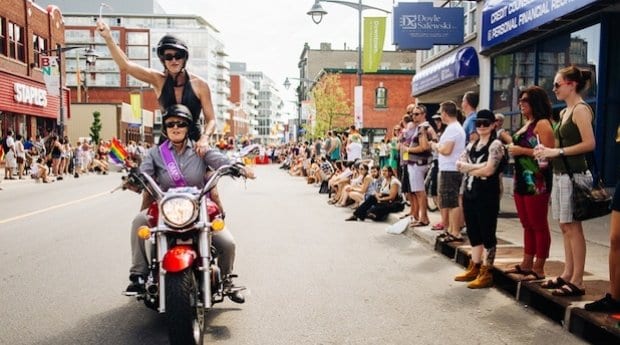
Capital Pride parade 2014. Credit: Ben Welland
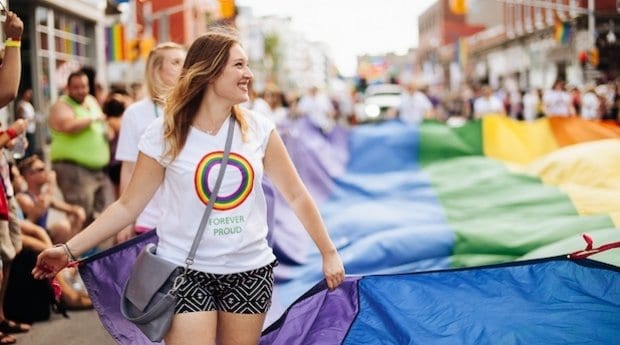
Capital Pride parade 2014. Credit: Ben Welland
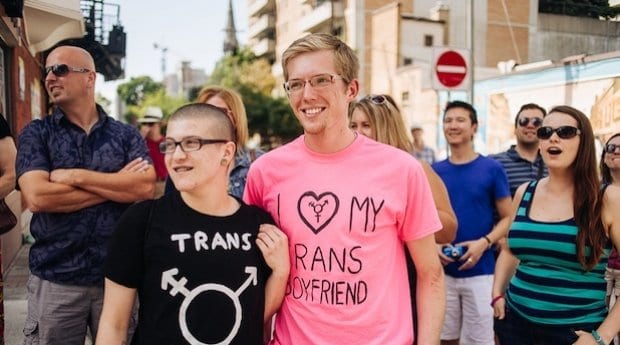
Capital Pride parade 2014. Credit: Ben Welland
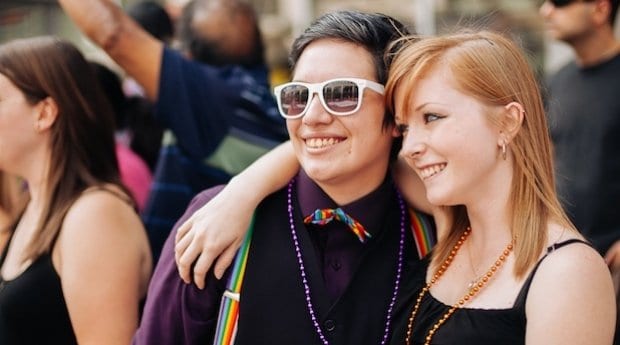
Capital Pride parade 2014. Credit: Ben Welland
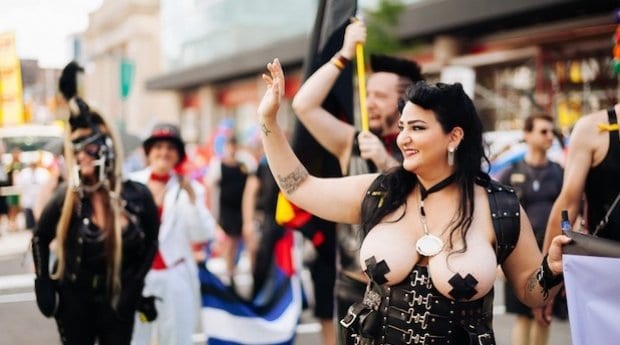
Ms National Capital Leather Pride Shade Nyx and members of the leather community wore yellow ribbons in honour of of Mr Leather Ottawa, Jon Letke. Credit: Ben Welland
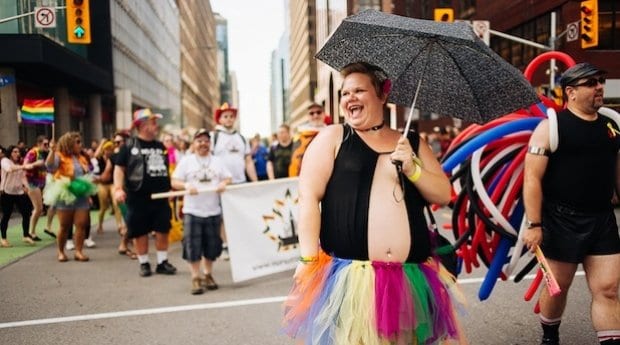
Capital Pride parade 2014. Credit: Ben Welland

Capital Pride parade 2014. Credit: Ben Welland
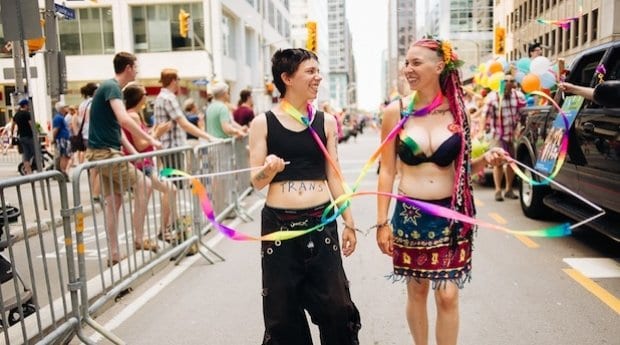
Capital Pride parade 2014. Credit: Ben Welland
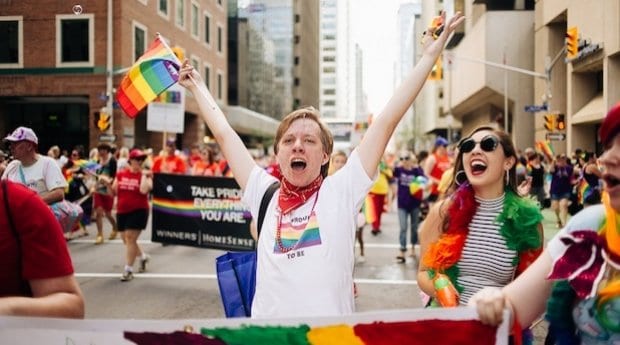
Capital Pride parade 2014. Credit: Ben Welland
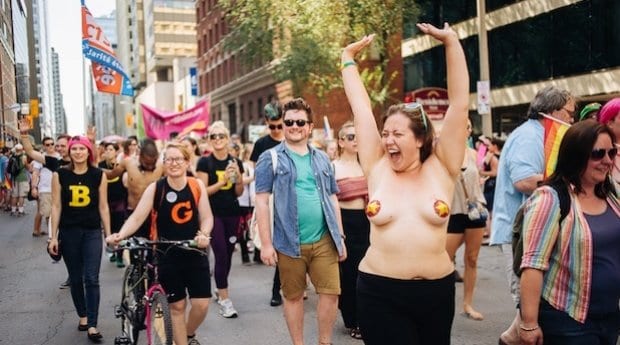
Capital Pride parade 2014. Credit: Ben Welland
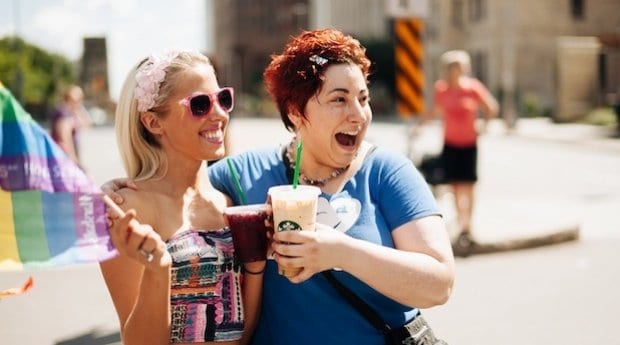
Capital Pride parade 2014. Credit: Ben Welland
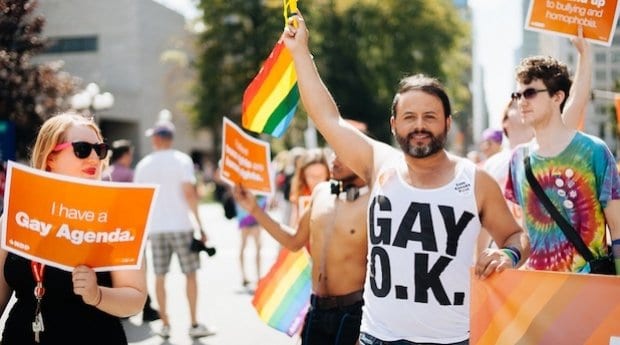
Members of the Ontario NDP attended the parade to show their support for the LGBT community. Credit: Ben Welland
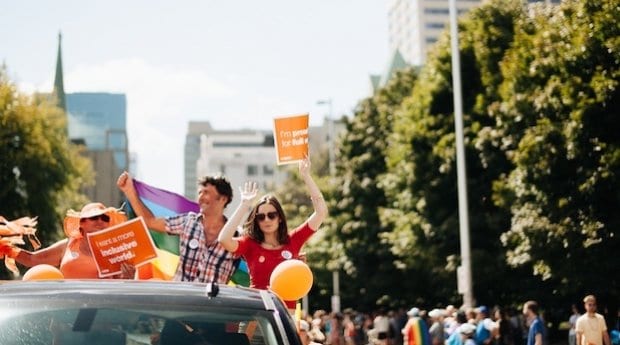
NDP MP Paul Dewar attended the parade. Credit: Ben Welland
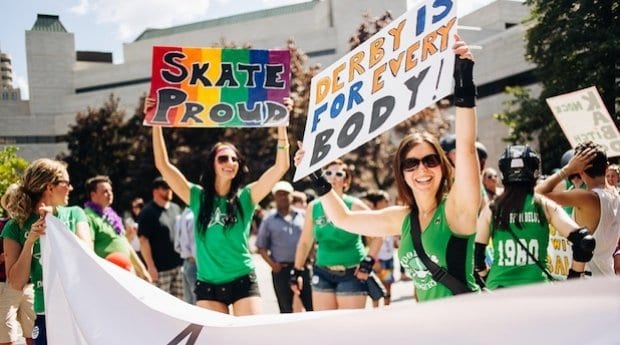
Capital Pride parade 2014. Credit: Ben Welland
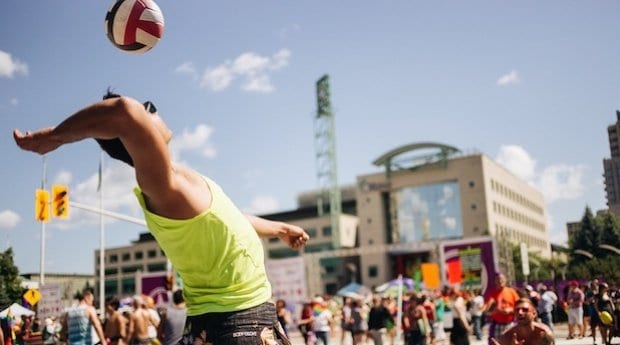
After the parade, crowds flocked to Ottawa City Hall to enjoy the information fair and main stage entertainment. Credit: Ben Welland

Capital Pride parade 2014. Credit: Ben Welland
The floats just kept coming Sunday, Aug 24, as the largest Capital Pride parade to date made its way down Bank Street. Revellers took to the streets in droves to watch the spectacle, which made its way through the Village before turning onto Laurier Avenue and ending at Ottawa City Hall. Marian Dewar Plaza once again hosted the Capital Info Fair and main stage, which featured DJ Hex Hector, Capital Tease Burlesque, Canada’s Capital Kings and Australian drag-DJ Kitty Glitter.
Parade organizer Tova Larsen says this year’s parade had 127 entries, up from 107 in 2013. The parade has seen steady growth in the last few years as Larsen says interest from businesses and community groups has grown. Ottawa Police Service estimated the number of marchers at 1,100. Capital Pride organizers say that over 110,000 spectators came to Bank Street to watch the parade.
“I’m sure this is bigger than I’ve ever seen it,” says Hannah Watt, Capital Pride director of youth and families. “I can’t believe how quickly this has been going by . . . yesterday I realized the next day was Sunday, and I had no idea where the days went.”
Parade entries on Aug 24 included the AIDS Committee of Ottawa (with a vintage disco-themed float that was a throwback to some of the organization’s early campaigns), members of the Ottawa Burlesque Festival, a number of church and religious groups, Canadian grocery giant Loblaws and RBC Royal Bank.
City council candidates Catherine McKenney, Jeff Morrison and Denis Schryburt were in attendance, as were NDP MP Paul Dewar and Liberal MPP Yasir Naqvi. Ottawa Mayor Jim Watson perched atop a City of Ottawa float, gleefully blasting onlookers with a super-soaker. Members of the city’s public services, including police, fire and paramedic services, also joined the parade, as did OC Transpo, though without the rainbow-bedecked double decker bus used for the flag-raising tour. A smaller Para-Transpo bus followed the group along Bank Street instead.
The Carleton University chapter of the Acacia International Fraternity joined the parade for the first time in the organization’s 25-year history in Ottawa. According to a GreedyGiver crowd-funding page set up by the fraternity to raise money for their parade entry, Acacia members marched to combat the stigma that often surrounds fraternity organizations. “It is our hope that, with us participating in this event, our members will feel comfortable with their sexual identity and be who they are to the rest of the chapter,” a statement on the page read.
The parade also included representation from the Ten Oaks Project, with co-founders Holly and Julia Wagg acting as co-community-builder marshals. Egale director Helen Kennedy served as grand marshal, along with youth marshal Elliot Wehrle, international marshal Cason Crane and lifetime achievement marshal Murray Lavigne of Ottawa’s leather community.
Members of the Ottawa Knights marched wearing yellow ribbons signifying suicide awareness; the leather community suffered a loss in July when the reigning Mr Leather Ottawa, Jon Letke, took his own life. Ms National Capital Leather Pride Shade Nyx told Xtra the ribbons were a way to raise awareness in the community, where depression and suicide remain prominent issues.
Pride Week also saw a number of new titleholders crowned, including Nyx; Mr National Capital Leather Pride, Pierre Girard; Mr Rubber Ottawa, Daniel Ivan Harris; and Ottawa Pup 2014, Robert Maizen. The new Mr and Miss Capital Pride were crowned Saturday, Aug 23, on the main stage with drag queen Jade London returning to the Miss Capital Pride role and drag king Master Cameron Eric Leon taking the Mr Capital Pride title. Asked how it felt to win, Leon said, “Real men cry. I cried.”
Capital Pride chair Jodie McNamara was rushed off her feet as she and a group of volunteers coordinated the day’s festivities from behind the scenes at city hall. “I don’t think a single board member or coordinator or volunteer has stopped moving since, like, 7am this morning,” she said.
“Every year you do it, you get a little bit better,” sponsorship coordinator Brodie Fraser says. “Funds-wise we’ve had a great year.” He says Capital Pride has doubled its 2013 sponsorship revenue, in part thanks to a strong showing from community groups. “The way I look at Pride is as a facilitator that creates the space to allow the community groups to come in and represent themselves.”
Watt, who is also the coordinator of Capital Pride youth branch Etc, says that working with young people continues to be a highlight of the Pride experience for her. “It’s all just so stressful, but working with the youth just puts a huge smile on your face every time that you do any project, so that’s what gets me through.”
This was Watt’s final year with Capital Pride; she will be moving to Europe in the fall to explore the next chapter of her life. “[Pride is] so incredibly rewarding, and I’m going to miss every single moment of it, but I’m glad that I’m ending on a high note and that I can actually get a little bit of rest for once,” she says.
For McNamara, the experience as chair of Capital Pride has been an intense one. “It’s funny because . . . some things you’re scared to do because you think it will be hard and you think you’ll struggle with it, but then once you do it, it’s not that bad or it’s not that challenging. This was every bit as challenging as I was worried it would be, I’ll be honest,” she says. “That said, it’s been a tremendously rewarding experience. It’s stretched me in directions that I wasn’t sure I could be stretched.”
McNamara says that she continues to find the community politics associated with the job a tough challenge. She feels more direct communication and engagement between Capital Pride and community groups is needed. “Pride is really, really important to a lot of people. That’s why the politics are as messy as they are, but that’s also why it’s so important that we do it and that people keep coming back . . . Pride is something bigger than any one of us and any one conflict.”
As Capital Pride heads into its 30th year, McNamara says the organization is at an important crossroads and needs to make conscious choices about how to move forward. “We have to decide what kind of an organization we’re going to be for the next 30 years, and it’s a great luxury to have that choice. I hope that we are very careful and that we’re listening to the community.”
McNamara says she will not be returning as chair of Capital Pride; her next project will be coordinating a series of queer nights at Yuk Yuk’s Comedy Club. “It’s good to have a new project and a new sort of direction,” she says. For her, the Pride experience has been both challenging and rewarding, but seeing it all come together makes the effort worthwhile. “I feel like the things you feel best about are the things that were harder.”
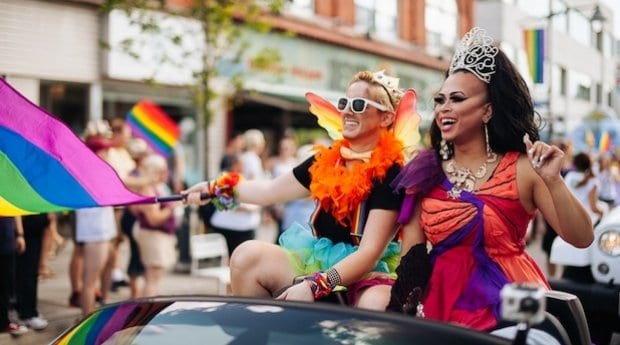

 Why you can trust Xtra
Why you can trust Xtra


